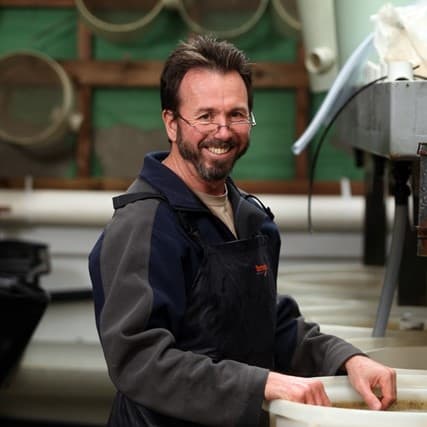Cawthron Institute to lead two major research programmes to advance open ocean aquaculture and transform freshwater fish management
9 September 2021
Cawthron Institute welcomes news that it has received government funding to deliver two strategic and impactful research programmes that will further develop Aotearoa New Zealand’s aquaculture industry and provide innovative approaches for freshwater fish management.
Cawthron will lead these two programmes, working alongside industry, community, Māori partners and other research organisations to deliver research that benefits Aotearoa New Zealand. They join a total pool of 69 scientific research projects that were funded through MBIE’s Endeavour Fund, which enables research that provides a range of economic, environmental and societal benefits.
The first Cawthron-led programme, Ngā Punga o Te Moana: Anchoring our Open Ocean Aquaculture Future, aims to deliver the knowledge and technology Aotearoa New Zealand needs to accelerate and scale-up its shellfish and seaweed open ocean aquaculture transformation.
Open ocean aquaculture has long been recognised as a major global opportunity for sustainable food production and Aotearoa New Zealand is well-placed to capitalise on this potential and diversify investment options for industry. Our aquaculture industry can grow rapidly in response to increasing international demand, but it is constrained by limited sheltered inshore farm space. There are large tracts of consented space available offshore and in the open ocean, but robust farming technology is required if we are to develop successful aquaculture operations in exposed and dynamic waters.
Cawthron Senior Aquaculture Scientist and Programme Lead, Kevin Heasman, says he is delighted by the funding announcement and this five-year research programme will advance open ocean transformation for the benefit of all New Zealanders.
“Our shellfish aquaculture industry is already achieving success through innovation, and this programme of R&D will build on that progress,” Dr Heasman said.
“We will work with industry to create opportunities for open ocean aquaculture expansion across the country and build the capability and capacity for the scale-up that is needed to reach commercial critical mass.

Kevin Heasman
Aquaculture Scientist - Cawthron Institute

Joanne Clapcott
Freshwater Scientist - Cawthron Institute
“At the same time, we will address social, environmental and te ao Māori perspectives, to ensure the widest social and environmental benefits to Aotearoa New Zealand from open ocean aquaculture.”
The second Cawthron-led research programme called Fish futures: preparing for novel freshwater ecosystems is another five-year project that will address the increasing stress on Aotearoa New Zealand’s freshwater fish from pressures such as human activity, climate change, pollution and threats from other species.
Cawthron Freshwater Ecologist and Programme Co-Lead Dr Joanne Clapcott says this research will transform the way we think about and manage freshwater fish through the co-development of new knowledge.
“Fish are a cornerstone of our freshwater values in Aotearoa, including biodiversity and ecosystem health. They help New Zealanders sustain their cultural identities and care and connect with the natural world. However, we are failing to protect fish and the values they support,” said Dr Clapcott.
The research programme will develop innovative approaches for multi-species fish management that are underpinned by knowledge of climate change, sociocultural values, and future species dynamics. The larger aim is to build shared understanding, respect and reconciliation of different values for fishes through three place-based studies and social and policy research at the national scale.
“The collaborative approach to this research will see us develop co-designed studies that investigate both social and environmental issues to help us understand how freshwater fish and fisheries can be enhanced and effectively managed in response to future climate change pressures,” said Dr Clapcott.
As part of this research, a policy working group, made up of Aotearoa New Zealand’s leading freshwater fish management agencies, will be tasked to develop new and responsive policies grounded by Treaty principles to better integrate the management of native and introduced fishes in Aotearoa New Zealand.